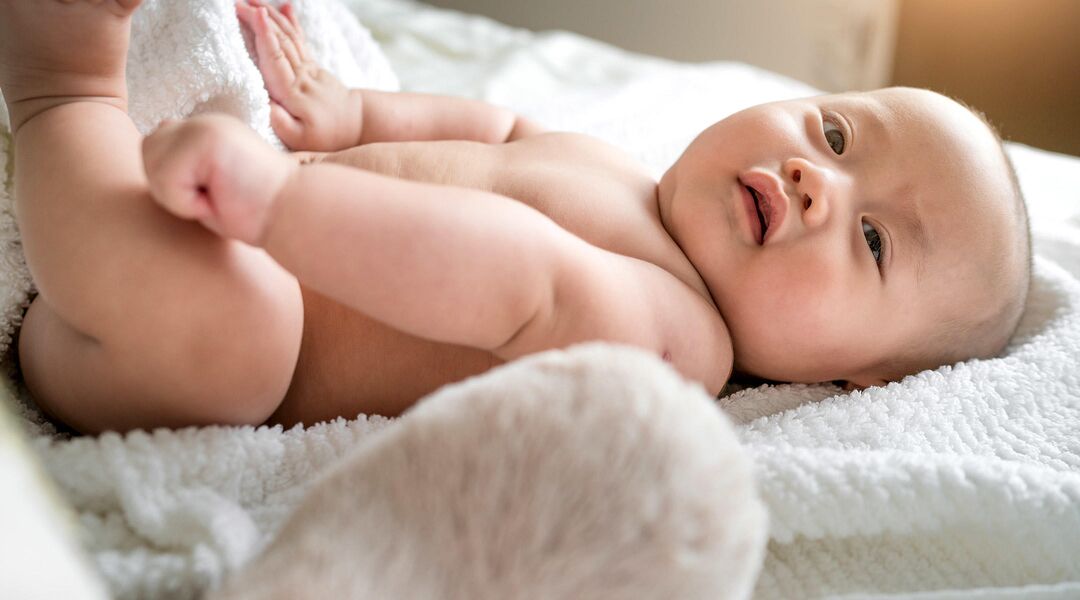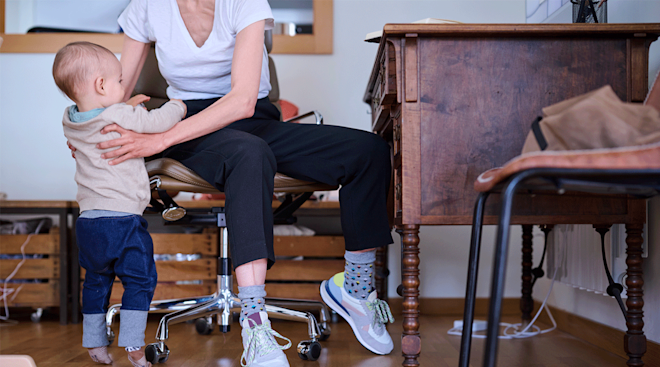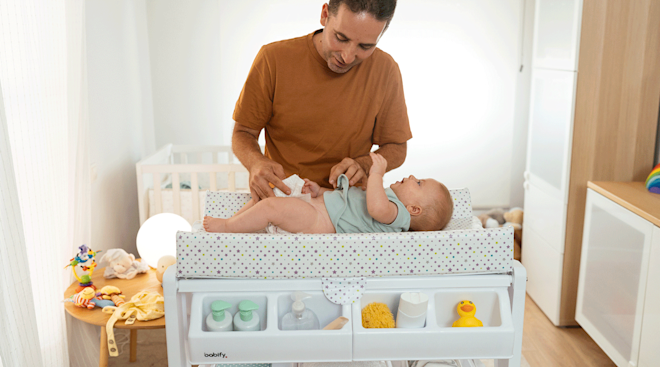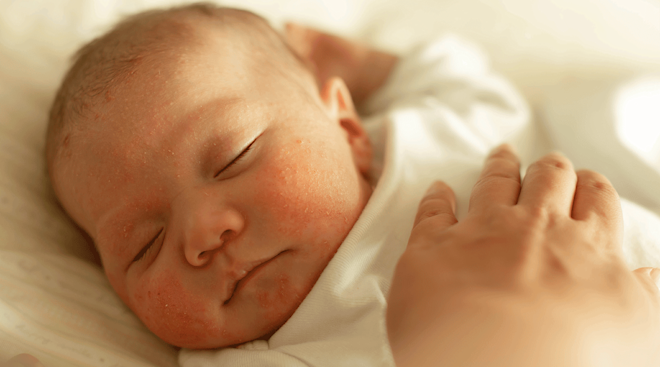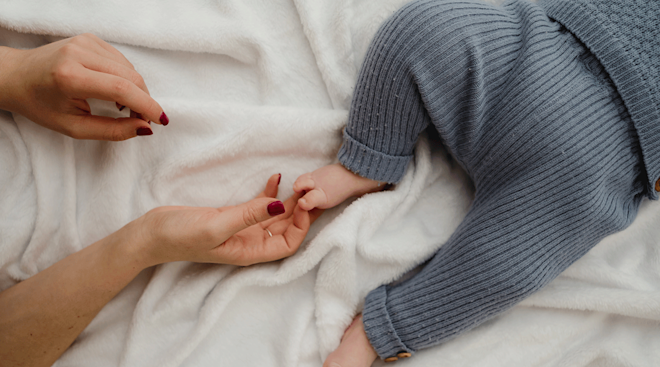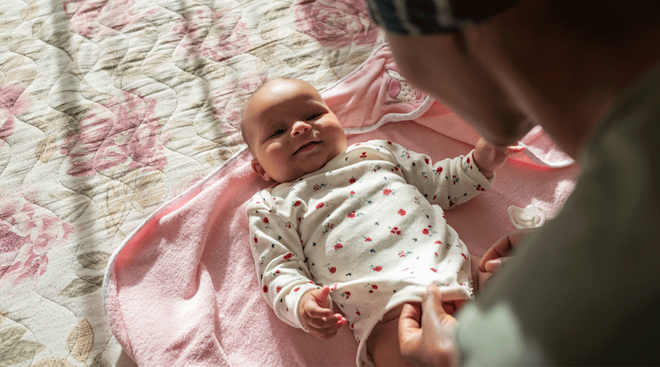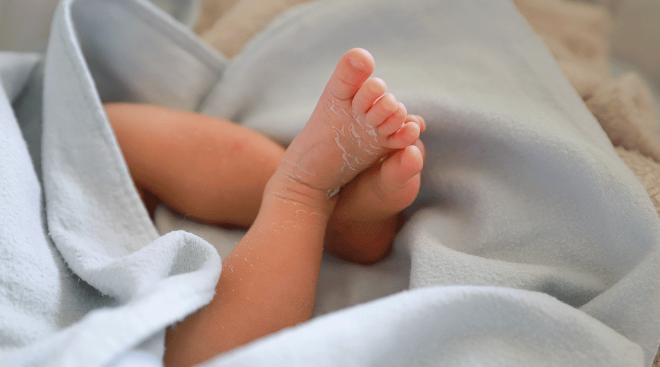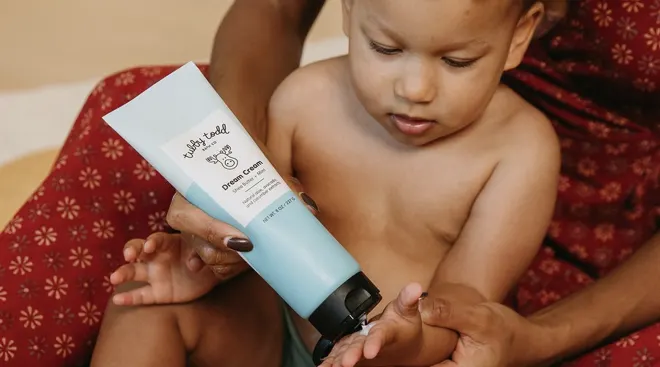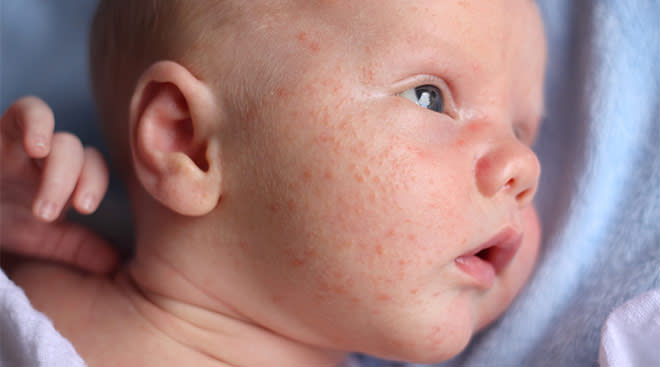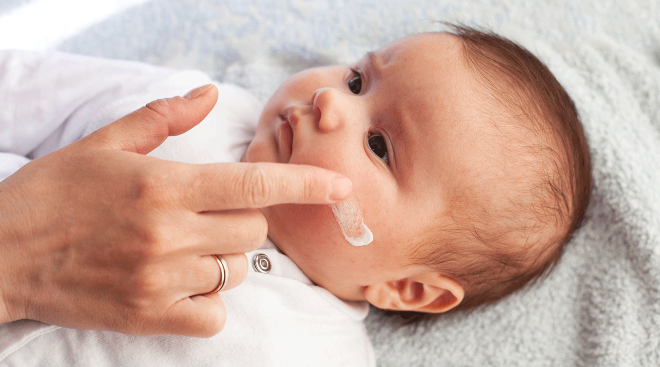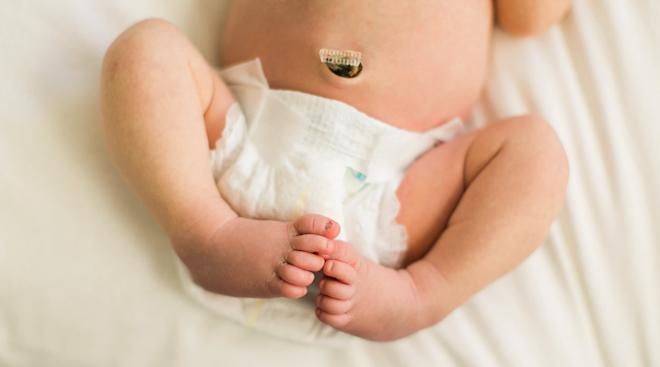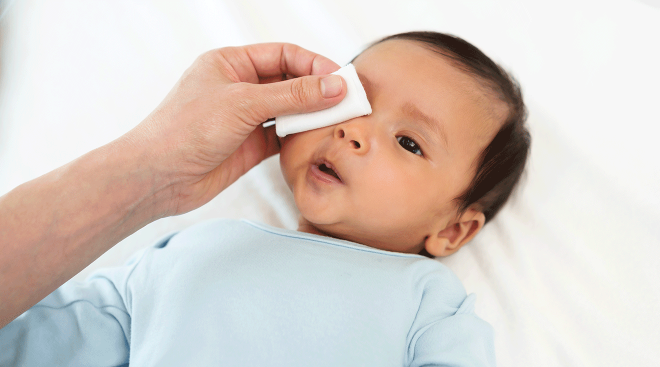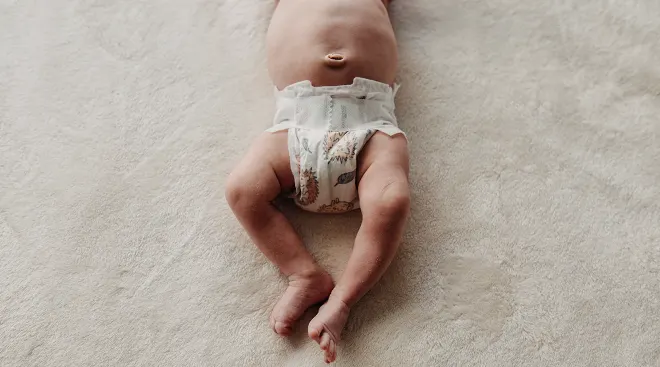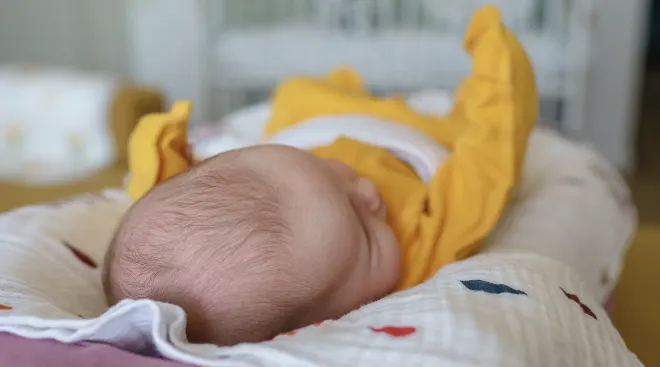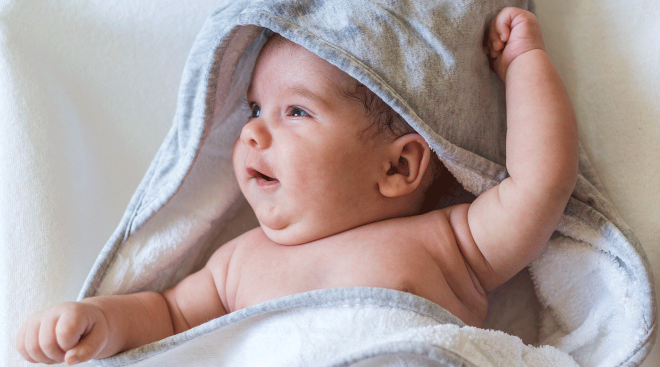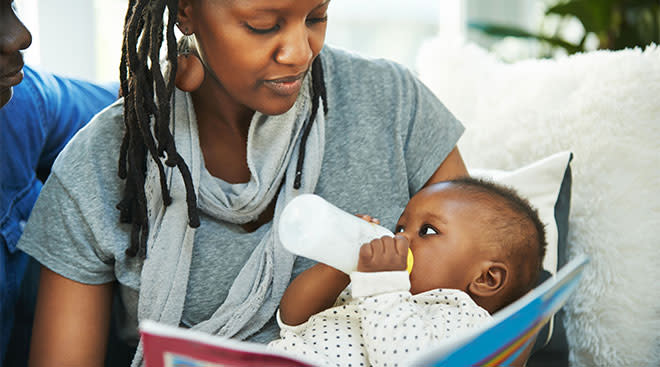Why Baby's Oral Hygiene Needs to Start Early
February is National Children’s Dental Health Month. Even if your Tooth Fairy days are far away, there’s plenty of ways to be proactive about baby’s oral hygiene. We spoke with Dr. Rob Compton, Chief Dental Officer at DentaQuest, to learn how to implement good dental health early.
Which toothpaste is best?
Despite all the Bubble Guppies and Bugs Bunny-themed toothpastes out there, baby doesn’t actually need a special brand. You’ll want to introduce toothpaste—but just a smear—as soon as that first tooth erupts.
“Exposure to fluoride is important; baby teeth can absorb fluoride right away,” says Dr. Compton. “You can use just about any kind of toothpaste, but they key is the amount. We recommend a pea size by age 3, and just a smear of toothpaste around age one, or whenever teeth start emerging. You just need to cover the teeth with a light film of fluoride.”
While fluoride is essential for strong teeth, know that too much can be toxic to baby. Remember, babies don’t spit, they swallow, so fluoride in water combined with fluoride in toothpaste can be dangerous. An amount the size of a grain of rice will do.
What kind of toothbrush should I use?
Until those first pearly white emerge, Dr. Compton says you really only need a damp washcloth to clean baby’s gums.
“Use a washcloth to wipe the gums down twice a day, helping the child get used to having things in their mouth,” he says, explaining that will make brushing easier down the road.
“By the time they’re teething, they like something a little firmer to bite on,” he says. “If you’re using a baby toothbrush, make sure it has soft bristles.” There are several gentle silicone baby toothbrushes on the market, which Dr. Compton indicates are just as good as pricier electric models.
“You really only need an electric toothbrush if you feel like you don’t have the manual dexterity to get the job done,” he says. “Most parents are able to simply brush the teeth with a manual toothbrush.”
Which teethers are the most helpful?
Any teether that you can toss in the freezer makes for the most effective soothing tool.
“Teething hurts because gum tissue is filling with fluid, and that pressure causes pain,” says Dr. Compton. “Cold will help the area contract, alleviating that pain.”
When should baby visit the dentist?
Just as you should introduce toothpaste as soon as teeth emerge—anywhere between 6 months and a year—you should get baby acquainted with a pediatric dentist early on. Sure, there won’t be a lot to check up on, but Dr. Compton says the dentist will assess any risk factors regarding oral hygiene. Are the parents doing things correctly, like introducing fluoride?
“Risk factors depend on the age of the child,” he says. “The biggest risk factor for young kids is giving them a bottle of milk at night to help them fall asleep. Sugar pools around the teeth, promoting harmful bacteria.”
As kids get older, Dr. Compton warns against giving them too much juice without brushing their teeth afterwards. “A lot of parents don’t realize juices are very acidic, which can damage teeth and promote harmful bacteria,” he says.
Taking your infant to the dentist also helps to normalize the experience. “It feels like a routine part of their life,” says Dr. Compton.
Does baby’s diet affect oral health?
In a word, yes. Food is the primary way both baby’s mouth and gut acquire bacteria, which is important for immune system development.
“You’re not born with bacteria, you acquire it. And it varies with your diet,” says Dr. Compton. “Within the first 30 months of life, the type of bacteria you’ll have in your mouth and stomach for the next few decades is determined and remains pretty stable. Kids can have tooth decay for years because of the amounts of sugar they received as toddlers.”
In addition to good oral hygiene, a healthy diet early on promotes better food preference. “If your child is getting fruits and vegetables, that’s what they’ll like,” Dr. Compton says.
Please note: The Bump and the materials and information it contains are not intended to, and do not constitute, medical or other health advice or diagnosis and should not be used as such. You should always consult with a qualified physician or health professional about your specific circumstances.
Navigate forward to interact with the calendar and select a date. Press the question mark key to get the keyboard shortcuts for changing dates.
































